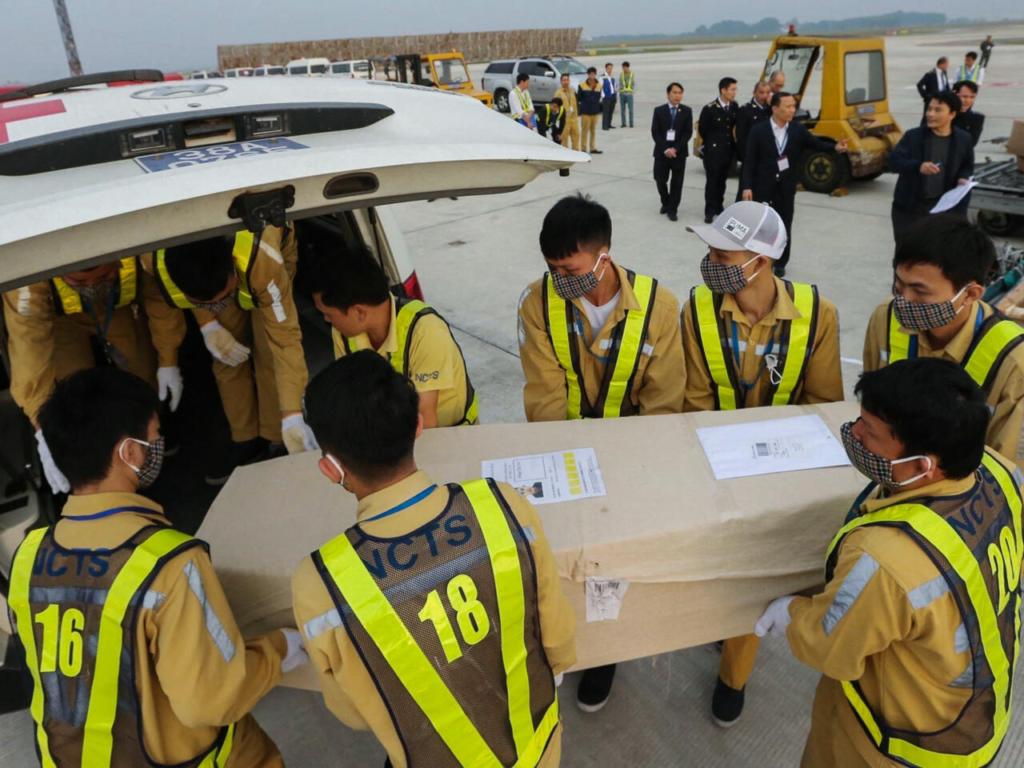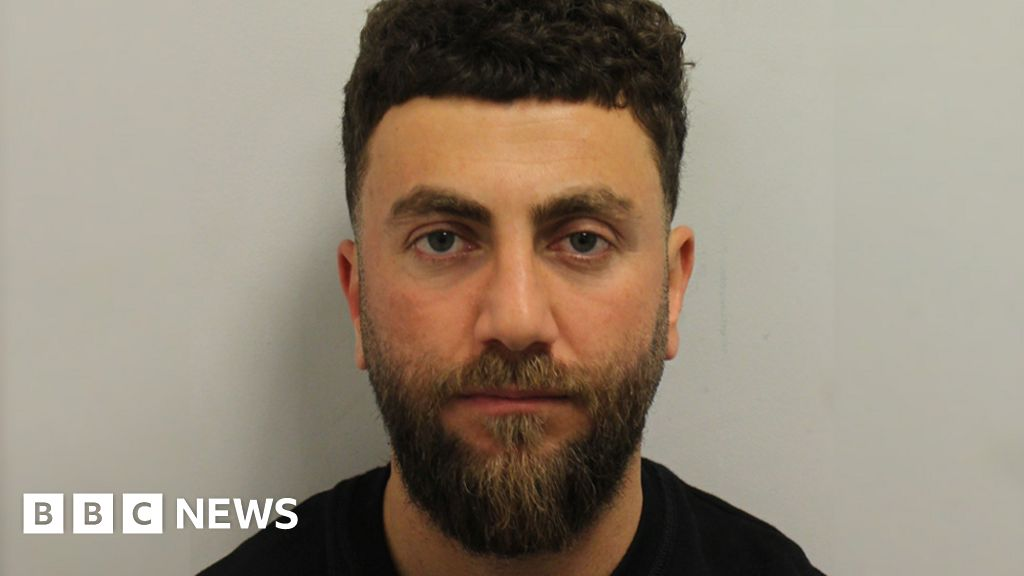In a somber ruling in Fergus Falls, Minnesota, Harshkumar Ramanlal Patel, the convicted leader of an international Tragic human smuggling operation, was sentenced to 10 years in prison on May 28, 2025. The sentencing comes more than three years after a family of four from India tragically froze to death while attempting to cross the U.S.-Canada border during a brutal blizzard. The case, which has drawn national attention, underscores the devastating human cost of illegal smuggling operations and the dangers faced by migrants seeking a better life in the United States.

A Heartbreaking Tragedy on the Border
The victims, Jagdish Patel, 39, his wife Vaishaliben, in her mid-30s, their 11-year-old daughter Vihangi, and 3-year-old son Dharmik, were found dead just north of the Manitoba-Minnesota border on January 19, 2022. The family, hailing from Dingucha, a village in Gujarat, India, succumbed to the extreme cold while attempting to cross into the U.S. in a remote, snow-covered stretch of the border. Their deaths shocked authorities and highlighted the perilous conditions migrants often face when guided by smugglers with little regard for their safety.
Prosecutors described the smuggling operation as a sophisticated network that exploited vulnerable individuals seeking better opportunities. According to court documents, Harshkumar Patel, who went by the alias “Dirty Harry,” orchestrated the movement of dozens of Indian migrants into Canada on student visas, only to smuggle them across the U.S. border. The operation relied on a web of intermediaries, including Steve Anthony Shand, a U.S. citizen from Florida, who was also convicted in the case and sentenced to 6½ years in prison.
The tragic deaths of the Patel family occurred during one such smuggling attempt. On that fateful night, the family was left to navigate a blizzard with temperatures plunging below -30°F. Prosecutors revealed chilling details during the trial, noting that Shand, tasked with picking up the family, texted Patel, “We not losing any money,” even as the family struggled in the deadly conditions. U.S. District Judge John Tunheim called the crime “extraordinary” due to the “unimaginable death of four individuals, including two children.”
The Smuggling Operation: A Web of Greed
The smuggling ring operated with calculated precision, exploiting migrants’ dreams of a better life. Prosecutors alleged that Patel and his associates charged migrants exorbitant fees, often thousands of dollars, to facilitate their illegal entry into the U.S. The operation began with securing Canadian student visas for Indian nationals, a legal entry point that served as a springboard for smuggling them across the border. Once in Canada, migrants were guided through remote areas into the U.S., often under dangerous conditions.

Acting U.S. Attorney Lisa Kirkpatrick emphasized Patel’s greed as a driving force behind the operation. “These were deaths that were clearly avoidable,” she told the court, arguing that Patel exploited migrants’ hopes for personal profit. The prosecution sought a sentence of nearly 20 years for Patel, citing the severity of the crime and its deadly consequences. Meanwhile, Shand’s defense attorney, Aaron Morrison, portrayed him as a minor player—a taxi driver desperate to support his family—who lacked decision-making authority in the conspiracy. Despite these arguments, both men were convicted on four counts each in November 2024.
The investigation into the smuggling ring remains ongoing, with authorities suggesting that others may still be involved. Michael Hanson, acting chief patrol agent for the U.S. Customs and Border Protection in the Grand Forks sector, noted that human smuggling along the U.S.-Canada border has remained “fairly steady.” He expressed hope that the sentencing would serve as a deterrent, particularly during harsh winter months when such crossings are especially dangerous.
A Broader Look at Human Smuggling in the U.S.
The tragic deaths of the Patel family are part of a larger issue of human smuggling across U.S. borders. In recent years, authorities have intensified efforts to dismantle these networks, which often operate with ruthless disregard for human life. For instance, in March 2025, federal prosecutors in Los Angeles charged four men with running one of the largest human smuggling rings in the U.S., allegedly responsible for smuggling over 20,000 people from Guatemala. The operation, led by Eduardo Domingo Renoj-Matul, involved holding migrants hostage in “stash houses” until fees were paid, with some facing threats of violence. CNN: Four people charged with operating ‘one of the largest human smuggling rings in the nation’
Similarly, a May 2025 incident off the coast of San Diego highlighted the dangers of maritime smuggling. Five Mexican nationals were charged after a boat carrying migrants washed ashore, leaving three dead and a 10-year-old child unaccounted for. The U.S. Attorney’s Office emphasized the lethal risks of such operations, with prosecutors seeking severe penalties, including the possibility of the death penalty for those responsible. Fox News: Human smuggling incident gone wrong results in three deaths, one missing child
These cases reflect a broader pattern of exploitation, where smugglers prioritize profit over safety. The Department of Homeland Security and the Justice Department have ramped up efforts to combat these networks, with Attorney General Pam Bondi highlighting recent successes in dismantling smuggling rings and cartels. However, the persistence of these operations underscores the challenges in addressing the root causes of illegal migration, including economic disparity and the demand for cheap labor in the U.S.

Legal Arguments and Sentencing Outcomes
During the sentencing, Patel’s defense attorney, Thomas Leinenweber, argued that his client was a low-level operative, not the mastermind prosecutors portrayed. He requested a sentence of time served—18 months—claiming Patel maintained his innocence. However, the court rejected this, citing substantial evidence of Patel’s leadership role. Shand’s attorney similarly downplayed his involvement, requesting a 27-month sentence, but the judge deemed his actions significant enough to warrant over six years in prison.
The sentencing has sparked mixed reactions. Some view the 10-year sentence for Patel as a strong message to human smugglers, while others, including migrant advocacy groups, argue that it fails to address the systemic issues driving illegal migration. The ongoing investigation into the smuggling ring suggests that more arrests may follow, as authorities work to uncover the full extent of the operation.
A Call for Awareness and Reform
The deaths of the Patel family have reignited discussions about the dangers of human smuggling and the need for comprehensive immigration reform. Advocates argue that addressing the root causes of migration—such as poverty and violence in home countries—could reduce the demand for smuggling services. Meanwhile, law enforcement continues to focus on disrupting these networks, with officials urging migrants to avoid risky crossings, especially in harsh weather conditions.
The tragedy also highlights the human toll of illegal border crossings. The Patel family’s story is a stark reminder of the risks migrants face, often driven by desperation and false promises of a better future. As Hanson noted, the sentencing sends a message about the consequences of human smuggling, but it also underscores the need for safer, legal pathways for migration.
Conclusion
The sentencing of Harshkumar Patel and Steve Shand marks a significant step in holding human smugglers accountable for their actions. Yet, the loss of Jagdish, Vaishaliben, Vihangi, and Dharmik Patel remains a heartbreaking reminder of the human cost of these illegal operations. As the U.S. continues to grapple with immigration challenges, this case serves as both a warning to smugglers and a call to address the broader issues driving migration. The hope is that such tragedies will spur action to prevent future losses and create a more humane immigration system.
Read More :- Social Media Platforms Test New Ad Formats, Prioritizing Short-Form Video Content in the USA






